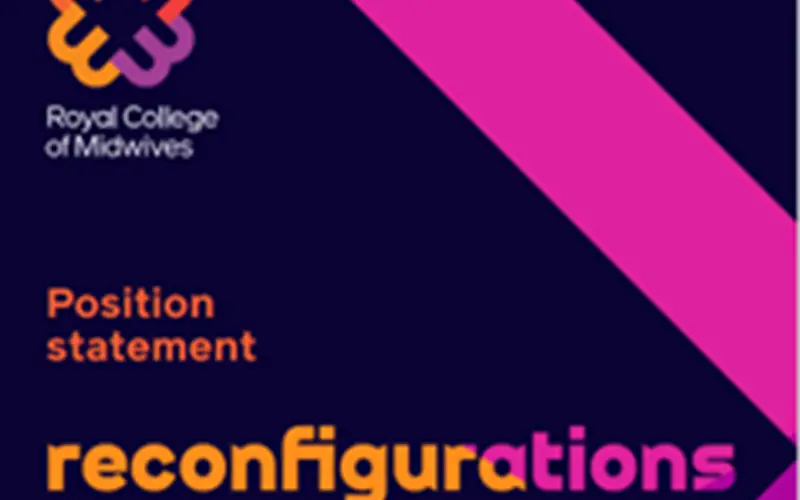Updated guidance on what to consider when reconfiguring maternity services has been published today by the Royal College of Midwives (RCM).
The guidance is aimed primarily at senior midwives and managers in trusts and boards, and RCM workplace representatives. It will also be useful to all midwives and maternity support workers who should be consulted on any changes to services they work in. It outlines what should be considered when reconfiguring – such as the impact on safety and inequality – and ensure that national initiatives are also taken into account.
Any changes to services should ensure that safety and choice are the absolute priorities, says the guidance, which covers all birth settings and staffing considerations. The RCM is clear that it is also crucial that women are involved in the process so that their voices are heard, and their needs met.
“Changes in any area of a service, however small, will inevitably have an impact on other areas, as well as on women and staff. That is why it is vital that when services are being re-organised that they are looked at in the round, and that the impact on the whole service is considered,” said Tara Kaufmann, the RCM’s Policy Advisor and lead on the guidance. “Following this guidance will go a long way towards making any changes work for women, families and staff.”
The College is also asking members to inform them if local services are being restructured so it can support them and their colleagues through the process, and to ensure the changes are in the best interest of midwives, maternity support workers and women.
The RCM has 12 clear recommendations that managers should consider when reconfiguring services. These include:
- giving high priority to meeting the needs of disadvantaged women, and reducing health inequalities;
- ensuring staffing and skill mix levels align with the needs of women and babies;
- encouraging multi-professional working and training;
- ensuring there is sufficient physical capacity to deliver services in the new or modified settings;
- building in staff wellbeing to reconfiguration plans, such as providing a safe work environment and access to refreshments and rest facilities.
Detailed guidance is also given around reconfiguration across all birth settings including home births, midwife-led units, and obstetric units. If the future of an obstetric unit is under review, serious consideration should be given to the impact of any closure on local women, and the ability of nearby services to absorb the extra demand says the RCM. If the decision is made to close, managers should look at the possibility of putting a midwife led service in its place.
Staffing levels – midwifery and obstetric – should also be scrutinised carefully when reorganising services. There must be enough midwives to deliver continuity of carer safely and one-to-one care in labour. Ensuring the labour ward is safely staffed should not come at the expense of other areas, such as community or home birth services says the guidance.
“These are top-line and overarching principles that we think should be built into any plans to change services be it a rural midwifery-led service, a major obstetric unit or a whole maternity service reconfiguration. It’s a list of key factors of what should happen to ensure safe services, but too often does not,” added Tara. “If your service is being reconfigured, share our guidance with those making the decisions, and push them to stick to its principles. The RCM is also here to support and guide you through that process. Together we can make services better for staff and better for women, babies, and families.”
To read the full guidance visit reconfigurations-postion-statement.pdf (rcm.org.uk).
Read a blog on the guidance by Tara Kaufmann at Reconfigurations – nothing about us without us (rcm.org.uk).



